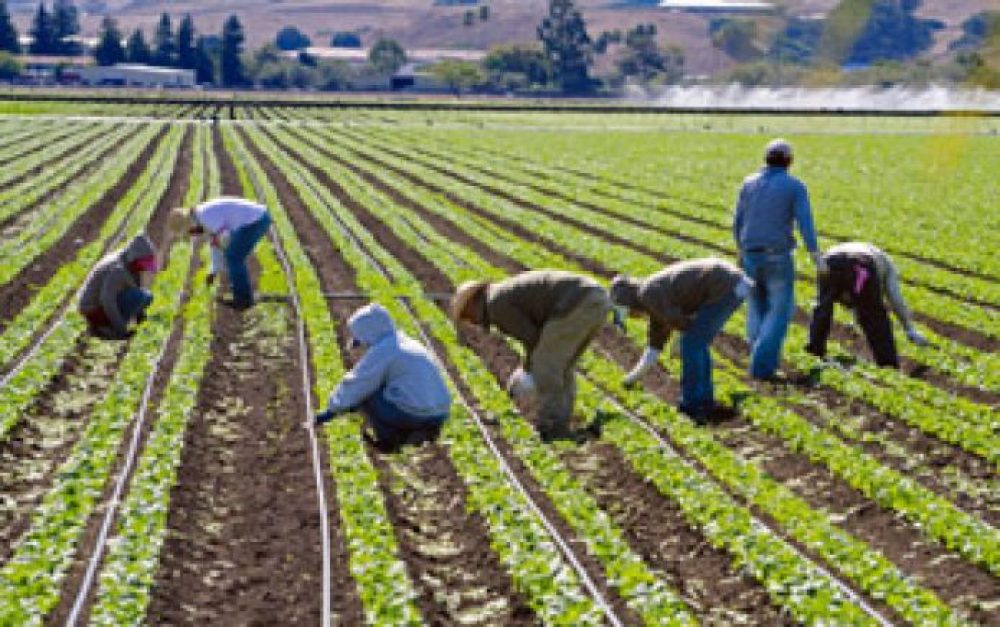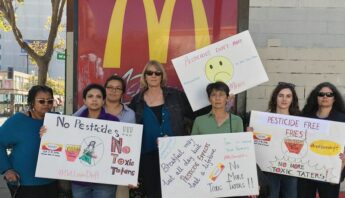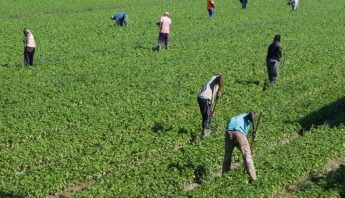Far too many of the United State's 80 million workers still don't receive fair wages or adequate workplace protections. This Labor Day, people across the country — in the streets and in Washington D.C. — are joining the call for better labor practices.
In his speech commemorating the 50th anniversary of the March on Washington this week, President Obama noted: "For over a decade, working Americans of all races have seen their wages and incomes stagnate." Workplace protection policies for many, including farmworkers, have also remained stagnate — and wholly insufficient. Change is long overdue.
Protections in the fields
Farm labor is one of the most dangerous professions in the country, yet farmworkers are specifically exempt from federal occupational safety laws that protect other workers. In 1995 the Worker Protection Standard (WPS) was developed to fill that void, but the law has fallen far short.
EPA has been promising to strengthen existing rules for the past 13 years, but the reality in the fields remains the same: farmworkers regularly face harmful exposures to pesticides. An estimated 10,000-20,000 are poisoned each year, and countless more suffer long term health harms.
PAN and our partners have documented, reported and reiterated the weaknesses and shortcomings of the rule since the EPA began its WPS review back in 2000. Now it's time to get them fixed. Will you join us in lighting a fire under EPA?
Time for action — everywhere
In a seemingly small but very important move in D.C., Congress recently crafted a deal — led by New York Democrat Charles Schumer and Arizona Republican John McCain — to reinvigorate the National Relations Board (NRBL). For too long, the NRBL had been reduced to inoperative with only one regular member, but in July the Senate confirmed all five members of the board. In response to the good news, Beth Allen, with the Communications Workers of America (CWA) opined, “We will have labor law on Labor Day."
And as Congress moves in the direction of progress, so too do workers around the country, from farmworkers to food workers. And this Labor Day, people in all states are building momentum for real workplace protections and appropriate compensation. They are calling for:
-
Fair wages and an end to child labor. The United Farmworkers (UFW) has launched a campaign calling for increased action from both state and federal agencies to make sure the labor laws on the books are really the laws in the fields. Last year, the U.S. Department of Labor finally stepped up their enforcement actions and invoked the "hot goods" provision whereby the federal government can prohibit a grower from selling produce that may have been produced violating important employment laws. Not surprisingly, big agribusiness has responded by trying to eliminate the hot goods provision. But UFW is helping to build momentum for growers to obey the law regarding wage theft and child labor.
-
More protections for food workers. On September 5, workers around the country will unite to protest Walmart's anti-worker actions including its poor wages and unjust labor practices. The Food Chain Workers Alliance has taken their struggle to Walmart headquarters and the shareholder meeting in Bentonville, Arkansas.
- Fair pay for restaurant workers. NPR reports that this Labor Day we can expect to hear reports of some of the largest food worker strikes on record. The planned walkouts follow a series of strikes that began last November in New York City, then spread to cities including Chicago, Detroit and Seattle. Workers say they want $15 an hour, which would be about $31,000 a year for full-time employees. That's more than double the federal minimum wage, which many fast food workers make, of $7.25 an hour, or $15,000 a year. The walkouts are targeting some of the nation’s largest food chains.
I was inspired by Obama's March on Washington speech this week. He said the right things about the power of organizing and how it has resulted in important policy changes from voting rights to civil rights. And he appropriately linked the unprecedented rise in corporate power (although he called it soaring profits and entrenched interests) with the significant increase in poverty and inequality.
I echo his call to act with courage for much needed change and I hope you'll join me, y todos nuestros hermanos across the country working together to realize the change we need NOW. ¡Sí Se Puede!








